Table of Contents
Today, Italy can count on as many as 53 UNESCO sites included in the World Heritage List (World Heritage List) and is the nation with the most recognition in the world. Of these sites as many as 9 are located in Campania, a region with the highest concentration of UNESCO tangible and intangible places.
Area rich in natural beauty and a historical and cultural heritage of absolute importance, Campania has been inhabited since the earliest times, and over the millennia many civilizations and cultures have overlapped, defining the region's current geographic and cultural appearance. Just think of the splendid Naples, a Pompeii or to the wonderful Amalfi Coast which attract millions of tourists from all corners of the globe every year. Let us therefore see what the main ones are UNESCO sites of Campania to visit with Movery.
Archaeological excavations of Pompeii
The Archaeological Park of Pompeii is one of the most iconic places in Campania and one of the most famous sites in the world. Here, time stood still on that day in 79 AD in which the eruption of the Vesuvius buried the Campanian town, leaving no escape for its inhabitants. Visiting this place offers a unique insight not only into the remains of the town, but also into daily life at that time, learning new clues about the culture and habits of the ancient Romans.
A Pompeii you can admire Roman villas, baths, theaters, mosaics and frescoes unearthed with hard work and numerous excavation campaigns. In order not to miss anything in the park, one can purchase a private guided tour of the archaeological ruins of Pompeii which allows you to avoid long lines and learn all the secrets of one of the most spectacular places in the world. Specifically, you will see the Amphitheater, the Great Theater, the Forum, the Villa of the Mysteries, the House of the Faun, the House of Menander, and much more.
Archaeological excavations of Herculaneum
Another UNESCO site of inestimable value are the archaeological excavations of Herculaneum, a splendid place of historical memory that still preserves a cultural heritage important for better understanding Roman civilization. A smaller city than Pompeii and also destroyed by the eruption of 79 A.D., inside the park one can admire the domus, streets, thermal buildings and other constructions for religious rites.
In particular, it is possible to see the Villa of Poppaea, the Villa of the Papyri, the Boat Pavilion and the Roman Theater. There are also well-preserved mosaics and frescoes that tell us more about Roman art. To enjoy such beauty, we suggest you book a private guided tour to the archaeological excavations of Herculaneum, thanks to which you can also visit the Samnite House, the House of the Relief of Telefo and the Fornici.
Historic center of Naples
Campania's UNESCO sites include the historic center of Naples, where one can fully grasp the traces of a millennia-old, timeless civilization. UNESCO World Heritage Site since 1995, this unique place in the world is an extraordinary blend of history, art and culture that shines through its squares, palaces and monuments. Such recognition highlights the role and importance of this area, a vivid example of the city's evolution over its long centuries of history.
Therefore, in the historical center of Naples, you cannot miss a visit to special places such as the Cathedral of San Gennaro, the Decumani, Spaccanapoli, the Basilica of Santa Chiara, the Gesù Nuovo Church, the Sansevero Chapel, the National Archaeological Museum, San Gregorio Armeno, and much more. If you are interested in exploring this part of the Neapolitan capital, don't miss the Naples historic center tour with skip-the-line option to Naples Underground. This experience allows you to see the Typography Museum, the Decumano Massimo (Via dei Tribunali), Piazza Bellini, San Lorenzo Maggiore and Piazza San Gaetano.
You might be interested
Shared guided tour of the Pompeii excavations with skip-the-line ticket included - Departure from Pompeii
per person Book
Vesuvius and Pompeii Ruins Tour: Transfer from Naples, Audio Guide and Pizza Included
per person Book
Priority entrance ticket to Herculaneum with guided tour
per person Book
Tour of the Royal Palace of Caserta by train from Naples: with or without audio guide
per person Book
Ticket for the National Archaeological Museum of Naples with Audioguide Included
per person Book
Walking Tour of the Center of Naples with admission ticket to the Sansevero Chapel
per person Book
Excursion to Pompeii departing from Naples including entrance fee and transfer
per person Book
Guided excursion to the excavations of Pompeii and Herculaneum with light lunch departing from Sorrento
per person Book
Royal Palace of Caserta
The Royal Palace of Caserta has been included, along with the San Leucio Complex and the Acquedotto Carolino, among the UNESCO heritage sites in the 1997 and is an extraordinary example of Baroque art and architecture. Built in the Bourbon era to a design by Luigi Vanvitelli, has been the royal residence of the Bourbon and today one can admire the royal apartments, full of elegant and precious furnishings and works of art, and the Italian-style gardens covering an area of 120 hectares embellished with waterfalls and gushing fountains.
It is one of the most impressive palaces in Europe, so much so that it is known as the "Italian Versailles." To visit it in all its splendor, we recommend carving out a few hours, perhaps booking a private guided tour of the Royal Palace of Caserta that will help you appreciate all this beauty and learn about the history of such a spectacular place.
Amalfi Coast
The Amalfi Coast gives visitors the most picturesque and unforgettable views in Italy, which is why the area was named a UNESCO heritage site in the 1997. This stretch of Campania's coastline is distinguished by its incredible scenic wonder in which the blue of the sea blends with the colors of the Mediterranean maquis and the scent of citrus groves. The Coast is composed of small seafaring villages rich in fascinating churches and tiled domes.
Among these, the most renowned resorts are Amalfi, Positano, Ravello and Vietri sul Mare, joined by small towns such as Atrani, Cetara, Maiori, Minori, Furore, Tramonti, Scala, Praiano and Conca dei Marini. Those fortunate enough to visit the Amalfi Coast will move among sheer cliffs, historic gardens, ancient villas and beaches with crystal clear water, and there is no shortage of nature trails such as the famous Path of the Gods. In addition, here you can buy souvenirs created with Vietrese ceramics and taste local delicacies such as the legendary lemon delight.


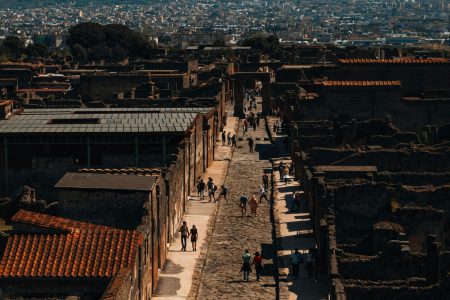
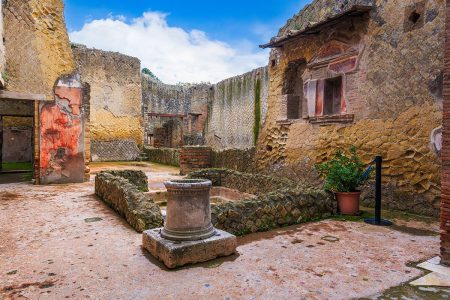


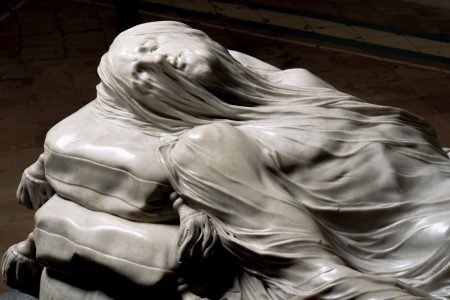
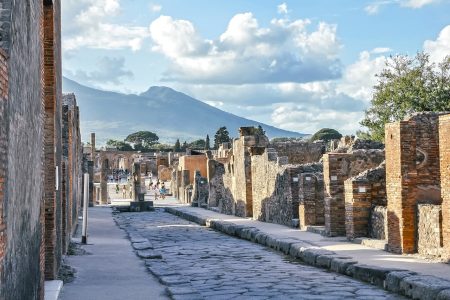
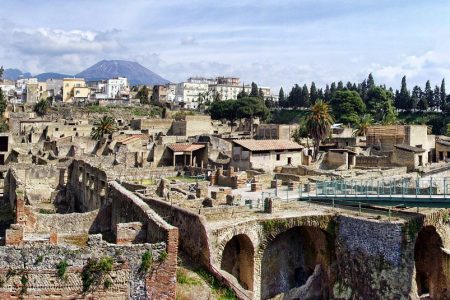
0 Comments